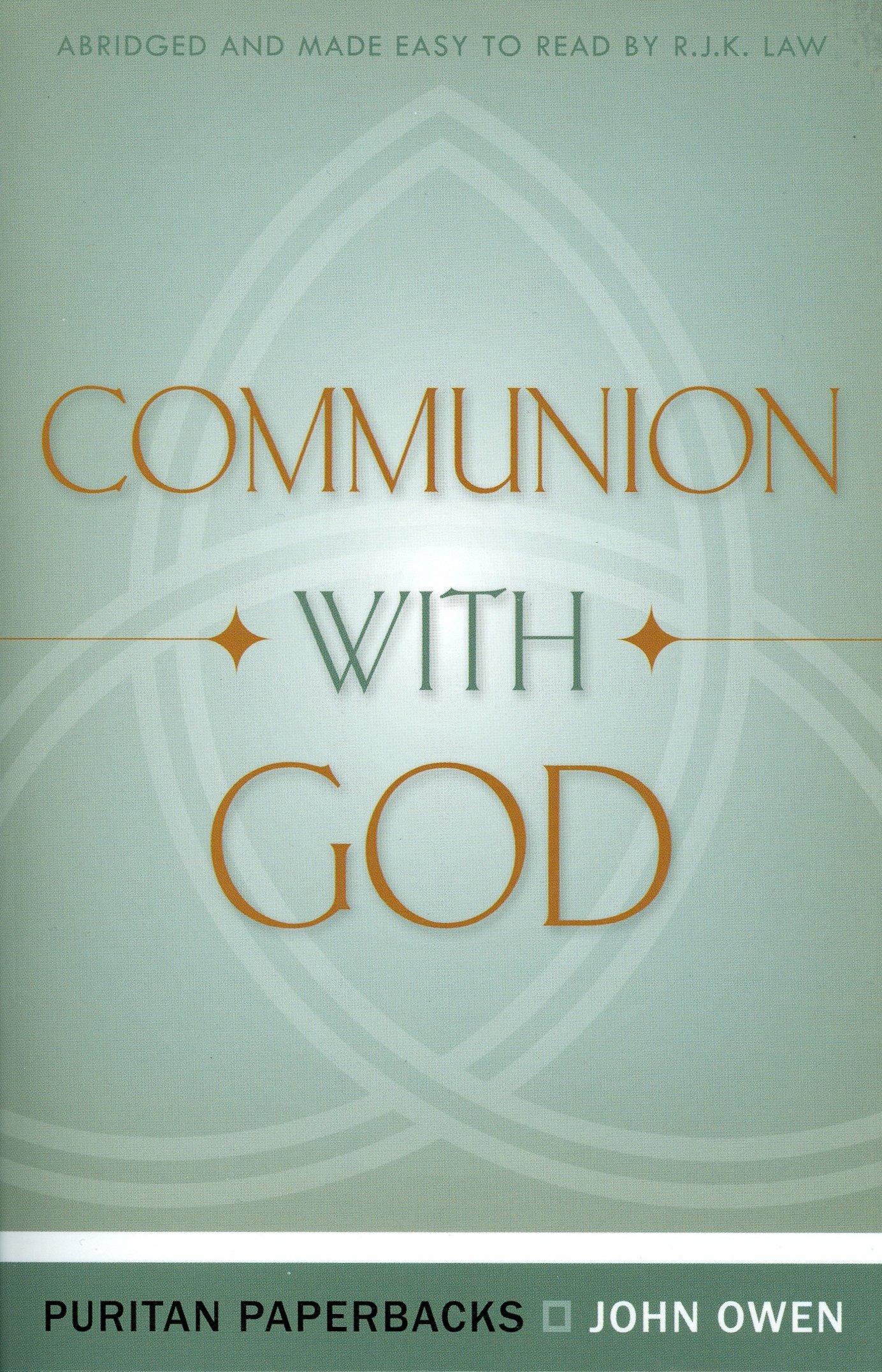A Brief Book Summary from Books At a Glance
By Clay Werner
About the Author
John Owen (1616-1683) was an English theologian and is considered one of the greatest European theologians to have lived. He was educated and taught at Oxford, was a chaplain in Cromwell’s army, and a pastor.
Overview
In this practical book that is rooted in deep theological truths, Owen urges believers to commune with each distinct member of the Trinity. In the first main section, it is shown how believers are to have fellowship with the Father in love. The second main section concerns communion with the Son in personal and purchased grace. The third section is about communing with the Spirit as a Comforter. Each section shows not only the way that the distinct member of the Trinity communes with the believer, but also shows how the believer is to respond in communion as well.
Contents
Part I: Communion with God in General and the Father in Particular
Chapter 1: The Saints Have Communion with God
Chapter 2: This Communion is with the Father, Son, and Holy Spirit
Chapter 3: Distinct Communion with the Father
Chapter 4: Implications of Having Communion with the Father
Part II: Communion with Christ
Chapter 1: The Fellowship the Saints Have with Jesus Christ
Chapter 2: The Way Believers Have Fellowship with Christ
Chapter 3: The Way Believers Have Fellowship with Christ- As a Husband to His Bride
Chapter 4: Communing with Christ as Our Husband Creates “Consequential Affections”
Chapter 5: Other ‘Consequential Affections”: Mutual Valuing. Compassion.
Chapter 6: Purchased Grace- Its Fountain
Chapter 7: Purchased Grace- Its Nature
Chapter 8: Of Communion with Christ in Our Acceptance with God
Chapter 9: Of Communion with Christ in Holiness
Chapter 10: Of Communion with Christ in the Privileges of Adoption
Part III: Communion with the Holy Spirit
Chapter 1: The Foundation of Our Communion with the Holy Spirit
Chapter 2: The Effectual Work of the Spirit in Believers
Chapter 3: Various Things In Which Believers Commune with the Spirit
Chapter 4: Consequences of Communion with the Spirit
Chapter 5: Contempt Shown Towards the Spirit
Chapter 6: Preparation to Commune with the Spirit
Chapter 7: How Believers Respond to the Spirit in Communion with Him
Chapter 8: Particular Directions for Communion with the Spirit
Summary
Part 1
Chapter 1: The Saints Have Communion with God
Naturally, because of sin, no one has communion with God. Yet, through the person and work of Christ we have spiritual communion with God (Eph. 3:12). Thus, for sinners “to have fellowship with God, the infinitely holy God, is an astonishing dispensation.” Through union with Christ by faith, we have this communion with God which Owen defines as “his communication of himself to us, with our response to him of that which he requires and accepts, flowing from that union which in Jesus Christ we have with him.” In glory, this communion is perfect and complete but as pilgrims it is initial and incomplete, yet producing a ‘farther longing’ after God and his salvation.
Chapter 2: This Communion is with the Father, Son, and Holy Spirit
Owen now discusses the manner and matter of this communion. First, we have distinct communion with each person of the Trinity which consists considerably in receiving their testimony (1 John 5:7). We have this access to God through Christ, in the Spirit, and to the Father. Yet, much of our communion also consists of our ‘moral and instituted worship of God.’ As we look in faith and love to the Father, He gives testimony of His Son which we receive by faith (1 John 5:9). Faith, hope, and love are also distinctly directed to the Son (Rev. 1:5, 6; 5:8; etc.). Our lives and worship are also to be directed to the Spirit. All of the above, Owen urges, reveals that we have distinct communion with each member of the Trinity.
One of the primary ways that God communes with us is through teaching. Owen begins by quoting John 6:45 where Jesus states that believers will be taught by the Father. By his teaching and the drawing of the Spirit, we are brought to a knowledge of Christ who will also teach us. Scripture also shows that the Spirit will teach us ‘all things’ too (John 14:26). Because there is distinct communication from each member of the Trinity. . .
[To continue reading this summary, please see below....]The remainder of this article is premium content. Become a member to continue reading.
Already have an account? Sign In
